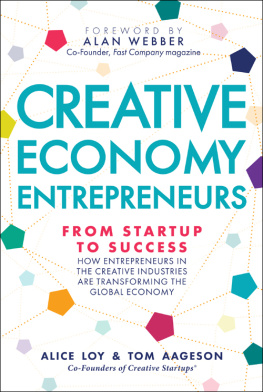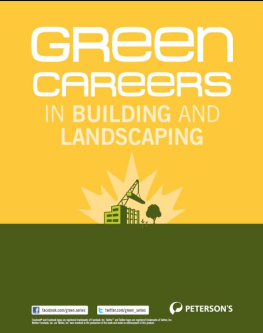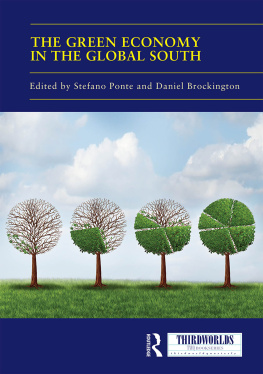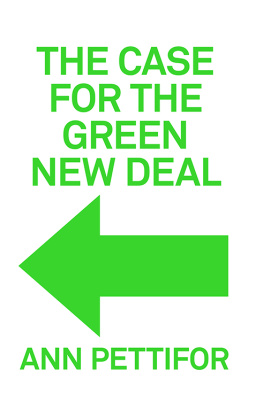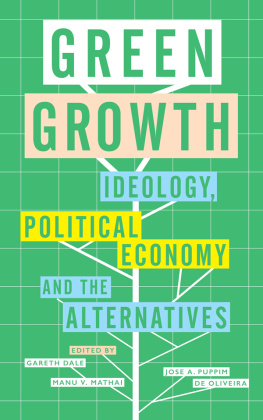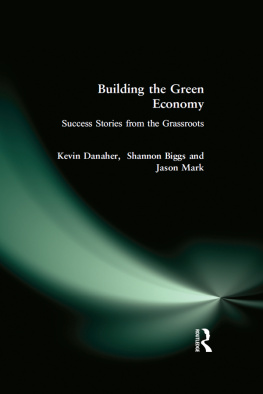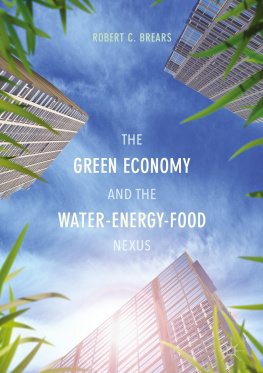Andrew Heintzman - The New Entrepreneurs: Building a Green Economy for the Future
Here you can read online Andrew Heintzman - The New Entrepreneurs: Building a Green Economy for the Future full text of the book (entire story) in english for free. Download pdf and epub, get meaning, cover and reviews about this ebook. year: 2010, publisher: House of Anansi Press Inc., genre: Politics. Description of the work, (preface) as well as reviews are available. Best literature library LitArk.com created for fans of good reading and offers a wide selection of genres:
Romance novel
Science fiction
Adventure
Detective
Science
History
Home and family
Prose
Art
Politics
Computer
Non-fiction
Religion
Business
Children
Humor
Choose a favorite category and find really read worthwhile books. Enjoy immersion in the world of imagination, feel the emotions of the characters or learn something new for yourself, make an fascinating discovery.

- Book:The New Entrepreneurs: Building a Green Economy for the Future
- Author:
- Publisher:House of Anansi Press Inc.
- Genre:
- Year:2010
- Rating:4 / 5
- Favourites:Add to favourites
- Your mark:
- 80
- 1
- 2
- 3
- 4
- 5
The New Entrepreneurs: Building a Green Economy for the Future: summary, description and annotation
We offer to read an annotation, description, summary or preface (depends on what the author of the book "The New Entrepreneurs: Building a Green Economy for the Future" wrote himself). If you haven't found the necessary information about the book — write in the comments, we will try to find it.
A fascinating tour of a visionary new class of entrepreneurs leading the revolution toward a green economy.
The New Entrepreneurs: Building a Green Economy for the Future — read online for free the complete book (whole text) full work
Below is the text of the book, divided by pages. System saving the place of the last page read, allows you to conveniently read the book "The New Entrepreneurs: Building a Green Economy for the Future" online for free, without having to search again every time where you left off. Put a bookmark, and you can go to the page where you finished reading at any time.
Font size:
Interval:
Bookmark:
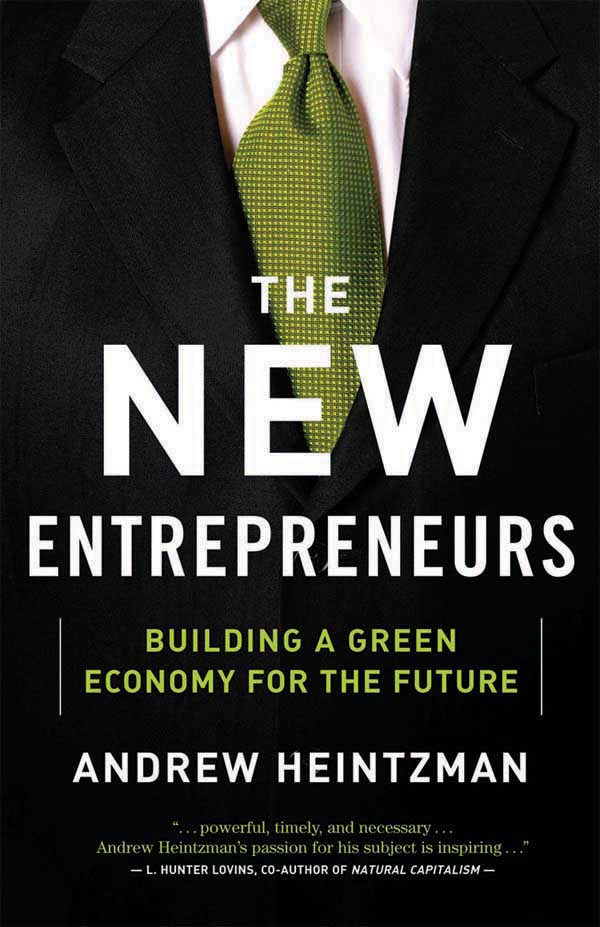
Copyright 2010, Andrew Heintzman
All rights reserved. No part of this publication may be reproduced or transmitted in any form or by any means, electronic or mechanical, including photocopying, recording, or any information storage and retrieval system, without permission in writing from the publisher.
Distribution of this electronic edition via the Internet or any other means without the permission of the publisher is illegal. Please do not participate in electronic piracy of copyrighted material; purchase only authorized electronic editions. We appreciate your support of the authors rights.
This edition published in 2010 by
House of Anansi Press Inc.
110 Spadina Avenue, Suite 801
Toronto, ON, M5V 2K4
Tel. 416-363-4343
Fax 416-363-1017
www.anansi.ca
LIBRARY AND ARCHIVES CANADA CATALOGUING IN PUBLICATION
Heintzman, Andrew, 1967
The new entrepreneurs / Andrew Heintzman.
Includes index.
eISBN 978-0-88784-950-3
1. Green technology Economic aspects Canada. 2. Technological innovations Environmental aspects Canada.
3. Clean energy industries Canada. 4. Entrepreneurship Canada.
5. New business enterprises Canada. I. Title.
HD62.5.H45 2010 338.9270971 C2009-906503-7
Library of Congress Control Number: 2010923894
Cover design: Bill Douglas
Cover photograph: Getty Images

We acknowledge for their financial support of our publishing program the Canada Council for the Arts, the Ontario Arts Council, and the Government of Canada through the Canada Book Fund.
For Roz, Theodore, and Molly
And the story is told
Of human veins and pulses,
Of eternal pathways of fire,
Of dreams that survive the night,
Of doors held ajar in storms.
E. J. Pratt, Newfoundland
If you look at the science about what
is happening on earth and arent pessimistic,
you dont understand the data. But if you meet the people
who are working to restore this earth and the lives of the poor,
and you arent optimistic, you havent got a pulse.
Paul Hawken, Commencement Address
to the University of Portland, Class of 2009
Preface
FIFTEEN YEARS AGO I READ a book that set me on a new path.
I was at my parents farm, and my brother Tom was reading Paul Hawkens The Ecology of Commerce , the bestselling book about the environment, business, and economic reform. I was interested in the subject, and on my request Tom read some passages from the book to me. I have to admit it my first reaction was that Hawkens view of the world sounded unrelentingly gloomy: the ocean was being fished out; we were double-glazing the atmosphere with carbon; species were going extinct at record rates. At first, this gloominess didnt correspond with what I saw around me. It was 1995. The economy was bouncing back from a recession; the technology revolution was well underway, opening up a whole new world of communication; the Iron Curtain had fallen and democracy was on the march; the world was relatively peaceful. In short, things were good. So why was this environmentalist raining on the parade?
Fortunately, this knee-jerk reaction did not prevent me from reading the book, which had a profound effect on me and fundamentally altered my perspective. What the book taught me was that an essential connection between the environment and the economy had been severed to the detriment of both. Hawken had identified a significant problem, perhaps the problem of our time: a design flaw in our economic system had allowed capitalism to become wasteful and inevitably unsustainable. And this design flaw was driving us toward a crisis that previously I had not seen clearly, but thereafter I could not ignore. More importantly, Hawken had also described a way to reconcile the interests of environmentalism and economics. And that was through the emergence of a new kind of capitalism.
Reading the book was a revelation. By showing how the environment and the economy can indeed, must be reconciled, he revealed how the deepest wound in our modern society could be healed. In this respect, what I realized was that far from being gloomy, Hawken was articulating a powerfully positive message. The book made such an impression on me that I bought twenty extra copies and sent them to important corporate and political leaders. Finance minister Paul Martin received a copy. So did Bill Gates. I kept thinking to myself: if just one of these ber-powerful people heard the message, we could change the world. Most sent polite form letters in reply, but Martins office, to his credit, actually called and asked for further reading.
Happily, I came to realize that a groundswell of people were already trying to use capitalism to solve environmental problems. These people were mostly entrepreneurs, developing small businesses that would provide low-impact energy, water purification systems, and models of sustainable agriculture. I became convinced that reconciling the split that Hawken had described lay primarily in the hands of these entrepreneurs.
So I helped to start a company that would invest in these businesses and support these entrepreneurs. At the time it was considered a radical idea. The investment industry was inclined to see these companies as highly marginal. And so it took a number of years to raise the initial capital required for a fund, but eventually my partners and I were able to do so. Over the last eight years I have spent my days seeking out green companies with high-profit potential. We have now invested in ten environmental companies some of which are described in the pages of this book.
These companies and sectors have since moved out of the margins. Governments, financial institutions, and the public recognize that they are providing solutions to many of the greatest problems we have today. They not only rise to Paul Hawkens challenge to define a new kind of capitalism that reconciles environmental and economic values but they are also advancing the inevitable goal of capitalists: to make money doing so.
HUMAN HISTORY IS MARKED by periods of profound and dramatic change, in which the methods of previous generations give way to new strategies. These moments are often the result of technological innovations that open up new possibilities and render older systems obsolete. Sometimes they come as a result of new ways of organizing society: novel political or economic structures, for example. Alternatively, they may be driven by a moral imperative, where new value systems force a change; the end of slavery is an example of how new social values played an important role in the broad evolution of society. When all of these imperatives are aligned as they are today then the most dramatic transformations become possible, and perhaps inevitable.
We are now in the midst of a great societal shift, a time of fundamental change driven by the strains of a rapidly growing population consuming an ever greater amount of resources on a finite planet. The ultimate cause and expression of this fissure is how we use our natural resources the biophysical substrata such as forests, water, air, atmosphere, minerals, fuel, biodiversity, soil which are essential to our lives and the ultimate source of all our wealth.
Over the last two hundred years a startling age of invention has resulted in the depletion of ancient stores of resources in the geological equivalent of a blink of an eye. New tools have provided humanity with the means to thrive as never before, allowing populations to grow exponentially and thus exacerbating the incredible draw-down of our natural capital. This unparalleled resource binge is the defining characteristic of the last two hundred years of planet Earth. The next two hundred years will be very different, for we will need to adapt in order to avoid breaching the limits of the natural world.
Font size:
Interval:
Bookmark:
Similar books «The New Entrepreneurs: Building a Green Economy for the Future»
Look at similar books to The New Entrepreneurs: Building a Green Economy for the Future. We have selected literature similar in name and meaning in the hope of providing readers with more options to find new, interesting, not yet read works.
Discussion, reviews of the book The New Entrepreneurs: Building a Green Economy for the Future and just readers' own opinions. Leave your comments, write what you think about the work, its meaning or the main characters. Specify what exactly you liked and what you didn't like, and why you think so.


